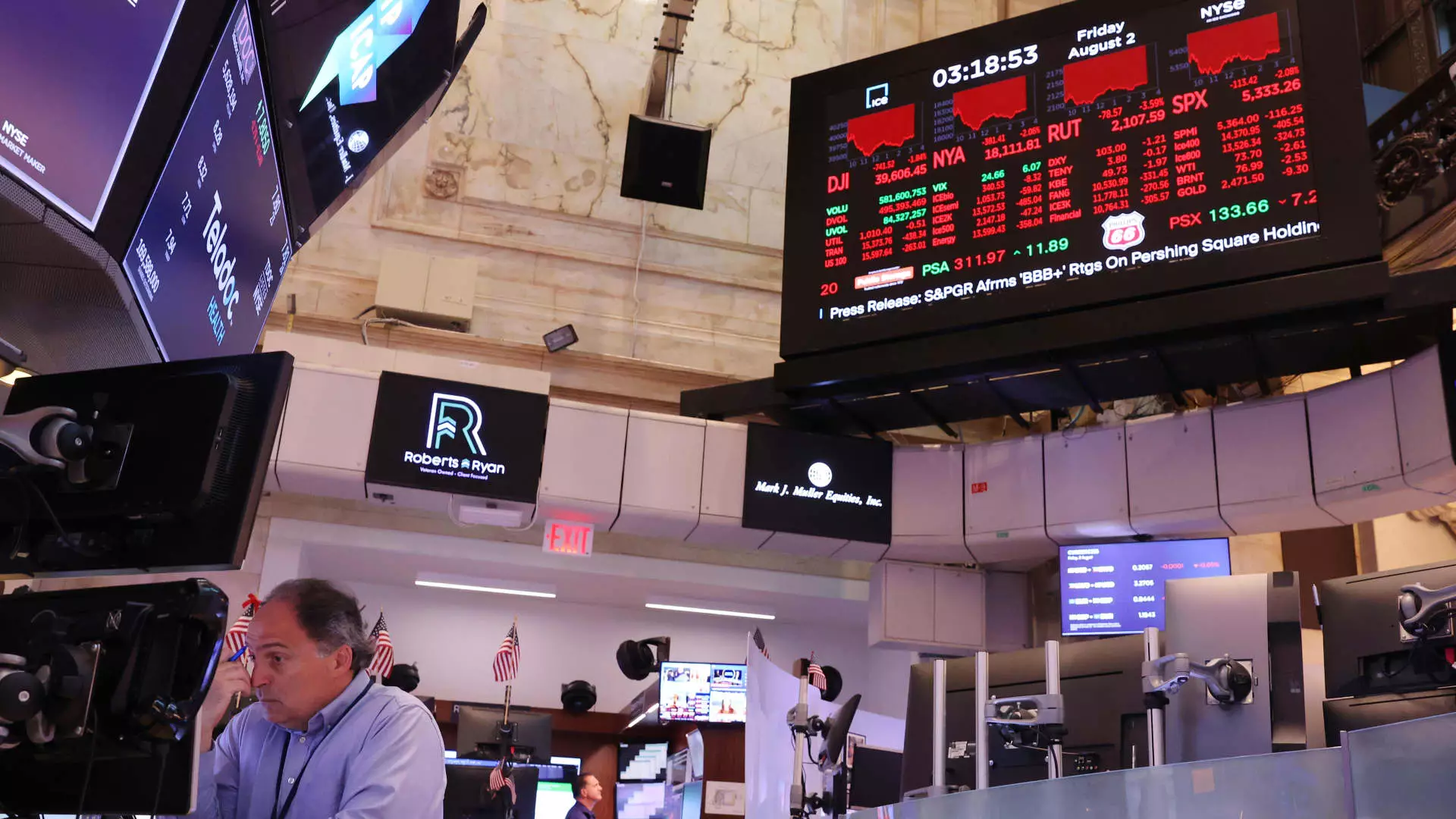The recent sharp stock-market selloff due to recession fears has raised concerns among investors. The S&P 500 index experienced a 3% loss, which was the worst in almost two years. Weaker-than-expected job data has fueled these concerns, hinting at a possible downturn in the economy. The Federal Reserve’s goal of achieving a “soft landing” might have been compromised due to these uncertainties.
A “soft landing” scenario would mean that the Fed successfully tamed inflation without triggering an economic downturn. However, recent data indicated a sharp jump in the U.S. unemployment rate, leading to speculation about a potential “hard landing” instead. Despite these worries, economists believe that the likelihood of a recession starting within the next year is relatively low. The possibility of a soft landing is still on the table, according to experts like Mark Zandi and Jay Bryson.
Zandi and Bryson suggest that avoiding a recession would require the Fed to start cutting interest rates soon. High borrowing costs increase the risk of a recession, making it crucial for the Fed to take action. The recent shock from the monthly jobs report, along with the rise in the national jobless rate, has raised concerns about the economy’s stability.
The Sahm rule, triggered by a specific increase in the unemployment rate, has historically been linked to weakening demand for workers. However, the recent rise in the unemployment rate is attributed to positive factors like an increase in labor supply. This makes the Sahm rule a less reliable indicator of an impending recession in the current economic cycle, as explained by Zandi and Bryson.
While there have been worrying signs of a cooling labor market, such as a slowdown in hiring and an increase in unemployment claims, there are also positive indicators pointing to economic resilience. Consumer spending remains strong, suggesting that the economy may weather these challenges. Additionally, underlying fundamentals like the financial health of households are relatively stable, providing some hope for the future.
The recent economic recession fears have led to a significant stock-market selloff and concerns about a potential downturn. While there are valid worries about the labor market and overall economic health, there are also positive factors to consider. Consumer spending and household financial stability present a hopeful outlook for the future. It remains essential for policymakers to take appropriate measures to prevent a recession and ensure economic stability in the coming months.

